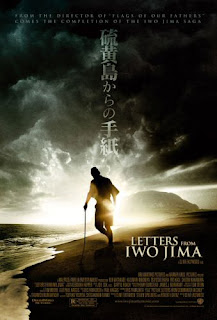The following is a compilation of the most notable news covered by The Golden Rock from May 21st to May 27th, excluding the Cannes Film Festival news:
- Jason Gray has seen Takeshi Kitano’s “Kantoku Banzai,” but has sworn to secrecy. So good luck trying to decipher his response, completely done in Japanese smiley faces.
- How can you get your movie into China without having to worry about blackout dates and import quota? Engage in an artistic battle royale with your fellow filmmakers at the Shanghai International Film Festival, and you shall get your wish.
- Following in the footsteps of Variety Asia, Hollywood Reporter has recently decided to expand their coverage into Asia with new offices in Hong Kong and Beijing. Good for them.
- EastSouthWestNorth has a link to an English TVB-produced special about The Society For Truth and Light, a conservative group in Hong Kong that is very much on the opposing side against the Chinese University of Hong Kong student newspaper controversy, and is a strong opponent against laws that outlaw discrimination of “sexual minorities” (that would mean the gays). The focus of the program is that they have recently been teaching a human rights course to schoolteachers. My favorite quote about the course: “If you think your time is valuable, don’t try to join this course.” Sounds like a quote ready for print.
- There have been clips of Sammi Cheng’s Hong Kong concert on Youtube, prompting the record company to ask Youtube to take it off the site. Problem is that these are just badly recorded clips from cell phones of digital cameras, so why start some petty copyrights fight to give up some promotion for the concert DVD?
- Apparently someone used a digital camera or something and bootlegged some footage from the reel for Feng Xiaogang’s The Assembly from the Cannes Film Festival. It looks technically accomplished, with huge explosions and whatnot, but Feng Xiaogang is first and foremost a commercial filmmaker. And honestly, the battle scenes look like they were taken straight out of Taeguki, which took its battle scenes out of Saving Private Ryan.
- Who says that playing video games ruins your mind? Well, maybe in America, but in Japan, the Nintendo DS is actually being used effectively to learn English.
- Mark Schilling has written an obituary for director Kei Kumai, who passed away on Wednesday morning Japan time.
- LoveHKFilm also has some new reviews, including last week’s openers in Hong Kong - Herman Yau’s Gong Tau and The Matrimony, starring Leon Lai and Rene Liu. On the Panasian side, there’s also the Japanese films Midnight Sun, Strawberry Shortcakes, and Hou Hsiao-Hsien’s Ozu tribute Cafe Lumiere.
Out of those, I’ve only seen Cafe Lumiere, and if i have never been to Tokyo, I would’ve been bored to death by it. But for some reason(most likely in that I’m a bit of a transportation nerd), I really liked how Hou Hsiao-Hsien captured Tokyo in such a naturalistic fashion. It’s not really a crazy city. In fact, despite its sheer size, the city is rather serene when you leave its busiest districts, and that’s what Hou managed to capture. Also, I was in a Japanese cinema class at the time, and I was actually looking for recurring Ozu themes throughout the film, which made it even more interesting. Plus, it was fun playing “what’s that train” and “which train station is that” throughout the film. However, I expect everyone else to be pretty bored.
- Good to see the Japanese government embracing the technology, with a government panel now encouraging webcast of television content without requiring getting permission from all rights holders, as long as royalties are paid.
This leads me to a short rant. Recently, I signed up for a Japanese video service named Gyao, which is by the Usen Group and basically provides streaming video service for free. Unlike websites like Veoh and Crunchyroll (no link for you!) basically allow users to upload and watch films for free and illegally, this one is actually 100% legal and free, paying for itself through advertising. It has films, music videos, dramas, basically everything users wanted when they go to sites like Youtube. I was signed up and ready to watch (I knew something was fishy when they asked for my Japanese zip code, though. I used the zip code of someone I know), then the service won’t let me watch it, limiting it to Japanese computers only.
Obviously, I understand that it’s a matter of copyrights when foreign films or films sold to foreign distributors are involved, but this just shows how much the studio cares about exposure versus pure profit. Who cares who watches their movies when they got money from their foreign deals all lined up? This disdain for international audiences by Japanese distributors are why copyrights for their shows are infringed all the time. This is why sites like Crunchyroll and Veoh pop up, while the Japanese authorities moan and whine about how foreigners are stealing their copyright. Mind you, I’m not going to start downloading Japanese movies without paying my dues, but I think they brought it onto themselves.
- Here’s kind of an interesting idea for a new film. The Korean-Canadian co-production “Anti-Hero” introduces a world where everybody has some kind of unique power (where are they going to think of 6 billion different unique powers?) except for the protagonist. Doesn’t that make him unique in the first place?
- Looks like Harvey Weinstein and Luc Besson are going at each other over The Weinstein Company’s release of Besson’s last film Arthur and the Invisibles. Even though Weinstein does have a record of screwing with their foreign acquisitions, I actually haven’t really heard anything positive about Arthur and the Invisibles, so it was probably going to flop anyway. Maybe Besson is just look for a scapegoat for failing to gauge the audience for this film.
- Another conflict that might pop up is going on in Japan, where outspoken director Izutsu Kazuyuki (Pacchigi - Love and Peace) praised films in general…..except Kitano doesn’t exactly care whether directors like films or not. This is ironic, considering Kitano’s movie emulates just about all popular genres of film, which I figured only a director that likes film would do.
- After becoming a limited release hit in Hong Kong, Borat has finally landed in Japan. Playing in about 30 screens nationwide (including just one theater in central Tokyo), the limited release strategy is another step by Fox to try and understand the strange Japanese market, where there really hasn’t been much of a pattern as to what type of Hollywood films work there (A.I. was a huge hit there while Batman Begins was not). Check out some of the more interesting promotional tactics. Also, the Shibuya theater linked above is offering admission for 1000 yen (scroll about one entry down) if you show up at the the theater on Mondays with a mustache on (fake mustache ok, but no stubble, not sure if the theater offers the mustache) and mention “hige” (mustache in Japanese) at the box office. Oh, and Japan Times has a review for it too.
- Everybody is finishing up their trilogies in recent years, from Alejandro Gonzalez Inarritu’s “Death Trilogy” to Gus Van Sant’s…..other “Death Trilogy” (apparently death at the hands of strangers is what he calls it) to Park Chan-Wook’s “Revenge Trilogy.” Apparently, even Takeshi Kitano has been doing a trilogy from “Takeshis’” to “Kantoku Banzai!”. Now he’s planning to finish up this “self-exploratory trilogy” with a movie about the life of an artist from success to ruin that will feature his own paintings. Parallel to Kitano’s own directorial career is still unknown, depending on the reviews for “Kantoku Banzai!”.
- There’s a law in China that bans all materials that deal with the supernatural. Films and books that deal with the supernatural are often banned, though there are ways around it, as evident in the recent thriller The Matrimony. The latest victim of this ban is the popular Japanese comic/animated series/films Death Note. Authorities in China finally got off their asses and seized over 2400 copies of the comic and 360 copies of what is probably the animated series or the films on compact discs. Thanks to the popularity of the comic, kids are also buying up the mock version of the Death Notebook (In Japanese, the word for notebook is “no-to,” or just “note.” So Death Note actually means Death Notebook), freaking out other kids by writing their names in it. Now that’s just plain mean.
- Since we were on the subject of law, Japan has finally passed a legislation in its parliament that bans the video recording of film in movie theaters. The fines are pretty heavy too, so think twice before bringing in that camera for the Death Note spinoff movie; keeping up your otaku cred isn’t worth that much.



